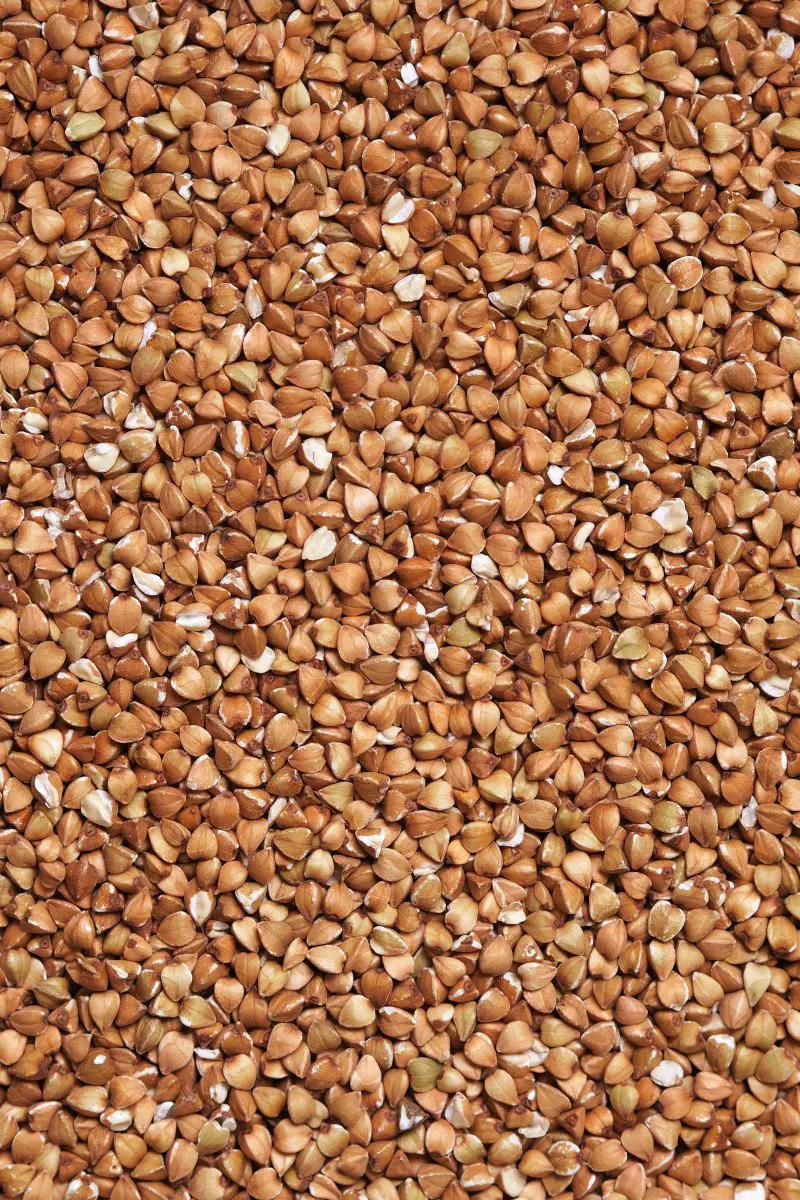The joy that a dog brings into a household is truly immeasurable. To keep that furry bundle of energy healthy and happier, feeding them superior quality dog food becomes an imperative duty of every pet parent. With an overwhelming variety of dog foods in the market, making the right choice can seem daunting. However, understanding the essential ingredients can help guide these nutritious choices.
It’s indisputable that what goes into your dog’s meal significantly affects their health. Serving your pets with fresh and natural dog food is akin to investing in their health and happiness. Dog food made with real, wholesome ingredients not only tastes better to your four-legged friends but also contributes to their overall well-being.
The importance of feeding your dogs with fresh food rests with the nutritive value they derive from each portion. With the right balance of proteins, carbohydrates, healthy fats, and dietary fibers, your dog will exhibit better energy levels, shinier coats, healthier skin, and better immune responses. Therefore, knowledge about these components, together with the ingredients that make fresh dog food nutritious, becomes crucial for every pet owner.
The differentiation of Ingredients to Look for in Fresh Dog Food as opposed to commercially produced dog food lies in the quality of ingredients – the less processed, the better. Commercial dog food often contains artificial additives and low-quality fillers which lack the essential nutrients needed by dogs. In contrast, fresh dog food often uses fresh, high-quality, and natural ingredients, making it a healthier alternative.
So, what ingredients should you be looking for when buying fresh dog food? A good start would be necessary vitamins and minerals derived from whole foods, high-quality proteins, carbohydrates for energy, and a good mix of soluble and insoluble fibers. In this journey to find the perfect bowl of health for your favorite companion, this guide brings to light the top seven ingredients you should prioritize when shopping for fresh dog food.
Table of Contents
1. Meat
Whether we’re discussing fresh, homemade food or examining pre-packaged options, one fact remains constant: meat is essential to a dog’s diet. In the wild, dogs are primarily carnivores, and their domesticated cousins maintain this preference toward high-protein diets rich in meat.
Understanding the significance of meat in dog food
Fresh Dog Food Components often include a variety of meats. It’s no secret that meats are packed with proteins that provide the amino acids necessary for dogs’ health. These building blocks are essential for promoting muscle health, strengthening the immune system, and boosting overall vitality. The high protein level in meat supports tissue repair and develops strong hair, skin, and nails.
Moreover, meats contain an array of essential nutrients like vitamins B, iron, zinc, and selenium that strengthen the immune system. They help keep your pet protected from infections and diseases while maintaining optimal health. Dogs that follow diets rich in meat often display enhanced levels of energy, reflecting their overall vitality.
2. Meat Meal
Healthy Dog Food Components go beyond fresh meat; ‘meat meal’ is another ingredient vital to our four-legged friends. Meat meal is a rich source of concentrated protein made from cooking and grinding animal tissues. Some of the most popular variants include chicken, beef, and lamb meal. Meat meal is essentially a processed form of meat, with the water and fat removed, leaving a concentrated protein source.
Meat meal can sometimes get a bad reputation due to lower-quality dog foods using meal from ambiguous sources. However, when chosen carefully, meat meal can offer tremendous nutritional value. Always look for ingredients specified as a particular meat meal like “chicken meal” or “beef meal” rather than vague terms like “meat meal.”
Ensuring the Right Balance
Focusing on these Nutritious Canine Diet Ingredients like meat and meat meal requires you to maintain a careful balance. It’s crucial that dogs have meat as the primary ingredient in their food. That’s because canines rely on diet for their protein necessities, since unlike humans, dogs cannot synthesize all essential amino acids.
However, it’s also important to avoid excess protein content. While dogs are carnivores, their domestication process over the years and less active lifestyle make it necessary for a well-rounded diet that incorporates fruits, vegetables, and grains, in proportion besides meat. Your aim should be a balanced meal that provides the necessary macro and micronutrients, ensuring that your pup gets all the nutrients it needs from fresh dog food.
Selecting the perfect ingredients for your dog’s diet, while not always straightforward, becomes exponentially easier with the right information. With awareness about the essential role of meat and meat meal and tailoring them to your pet’s nutritional needs, you can explore the richness of meat-inclusive diets.
3. Fruits and 4. Vegetables
The discussion around essential ingredients in fresh dog food often centers on animal proteins as primary components. However, to ensure a balanced meal, fruits and vegetables play a crucial role in providing necessary vitamins, minerals, and fiber. Undoubtedly, these components substantially contribute to a Nutritious Canine Diet.
The necessity for fruits and vegetables in dog food

Natural Dog Food Ingredients like fruits and vegetables contribute to a dog’s health in multiple ways. They’re treasure troves of dietary fiber, essential vitamins, antioxidants, and minerals that promote healthy digestion, boost the immune system, and support overall wellness.
Dietary fiber found in veggies and fruits aids digestion, helping maintain a healthy weight and preventing issues like constipation and diarrhea. Importantly, these fiber-rich components contribute to a sense of fullness, preventing your dog from overeating.
The vitamins and minerals present in fruits and vegetables are critical for a dog’s overall health. For instance, Vitamin A supports eye health, while vitamin K aids blood clotting, and various B vitamins contribute to a healthy coat and skin.
Fruits and vegetables are also rich in antioxidants, which are compounds that protect the body from harmful free radicals. Antioxidants boost the immune system and help maintain overall health by warding off diseases and slowing the ageing process.
Highlighting some key fruits and vegetables
Healthy Ingredients in Dog Food encompass a variety of fruits and vegetables. For starters, sweet potatoes and carrots are excellent choices. They’re rich in dietary fiber, contributing to a healthy digestive system, and packed with vitamins especially vitamin A, promoting good vision, healthy skin, and a strong immune system.
Other nutritious plant ingredients include green beans and peas. Green beans are low in calories but rich in vitamins and minerals, providing your pet an excellent, low-calorie source of protein and fiber. Peas, on the other hand, are good sources of vitamins A, K, and various B vitamins.
Lastly, berries like blueberries and cranberries are excellent choices for canine diets. Blueberries are known as superfoods for their high antioxidant content and cranberries can support urinary tract health.
Risk and consideration of allergies
While incorporating fruits and vegetables into dog food can provide numerous health advantages, it is essential to be aware of some dogs’ potential sensitivities to specific ingredients. Allergies or intolerance can lead to discomfort or more serious health issues in dogs.
Knowing your dog’s sensitivities is crucial when Choosing Fresh Dog Food. Symptoms to look out for include itching, excessive hair loss, diarrhea, and vomiting. If you notice such symptoms shortly after introducing new fruits or vegetables to your dog’s diet, they might be allergic to those specific ingredients.
The introduction of new food should always be gradual, and careful observation is necessary to note any adverse reactions. In conclusion, fruits and vegetables are essential parts of a dog’s diet and should be included with the understanding of their benefits and potential risks.
5. Grains, 6. Fish and 7. Other Essential Nutrients
When discussing Fresh Dog Food Components, the talk often gravitates towards meat, fruits, and vegetables. Yet, missing from such conversations are essential ingredients like grains, fish, and other vital nutrients. These elements complement primary foods and ensure a balanced intake of elements vital to your dog’s health.
Grains as an energy source
Whole grains contribute significantly to the overall Nutritious Canine Diet Ingredients. They function as a ready source of energy, aiding physical activities and maintaining optimal heart health. Whole grains like barley, oats, and brown rice also pack essential nutrients like B-vitamins, minerals, and fibers promoting digestion and supporting heart health.
It’s crucial, however, to differentiate between healthy and less healthy grains. While whole grains provide a surplus of benefits, ingredients like white rice or wheat flour offer little nutritional value and could contribute to weight gain. So, when Choosing Fresh Dog Food, always lean into whole grains.
Also, remember that not all dogs can tolerate grains, and some may even develop allergies. In such cases, opt for gluten-free options such as quinoa or buckwheat, which deliver similar benefits without the potential drawbacks.

Fish for Omega-3 and Omega-6 fatty acids
Beyond grains, fish is another critical ingredient in fresh dog food, especially for its measurable amounts of Omega-3 and Omega-6 fatty acids. These essential fatty acids are key to maintaining a dog’s skin and coat health, reducing inflammation, and supporting the cardiovascular system.
Two Omega-3 fatty acids found in fish, EPA (Eicosapentaenoic acid) and DHA (Docosahexaenoic acid), are known for their roles in brain health. DHA is particularly beneficial for puppies as it aids in the development of the nervous system, while EPA is beneficial for dogs of all ages, supporting the heart and immune system.
While fatty acids in fish offer great benefits, the quantity of fish in your dog’s diet should be moderated. Too much fish can lead to an upset stomach and too much fat and calorie intake. Therefore, a balance is key.
Other vital ingredients
High-Quality Dog Food also includes ingredients like eggs, probiotics, prebiotics, glucosamine, and chondroitin. Eggs serve as an excellent source of highly digestible protein and an array of vitamins and minerals. They are also one of the few food sources that naturally contain vitamin D.
Probiotics and prebiotics promote healthy digestion, aid the absorption of nutrients, and help in maintaining a robust immune system. Prebiotics support gut flora, while probiotics add beneficial bacteria to your dog’s gastrointestinal tract.
Supplements like glucosamine and chondroitin are advantageous for older dogs or breeds predisposed to hip dysplasia. They support joint health, enhance flexibility, and can potentially slow down arthritis progression.
All in all, grains, fish, and these auxiliary ingredients significantly contribute to a balanced, healthy dog food, ensuring your pet gets all the crucial nutrients it needs for maximal health.
Final Thoughts on Selecting Quality Dog Food
Paying attention to what is in your dog’s food and choosing quality ingredients is one of the best things you can do to ensure their overall well-being. Our pets are an integral part of our lives, and they rely on us to choose the best for them. Therefore, focusing on their nutritional needs should always be a priority. This includes offering them a balanced diet, filled with quality ingredients, that encourages not only their growth but also maintains their overall health.
Whether it’s protein sourced from the best meats and fishes, carbohydrates from whole grains, or dietary fibers from fruits and veggies, all should work synergistically as Fresh Dog Food Components to meet your dog’s unique requirements. Remember that change can sometimes be a slow process, so it’s essential to introduce any diet modifications gradually and watch keenly for any reactions or sensitivities.
Your initiative to discover and use high-quality ingredients in your dog’s food will make a notable difference in their quality of life. Pets fairly fed on an optimal diet shows in their shiny coat, healthy skin, bright eyes, and vigorous interaction, showing that good nutrition transcends physical attributes and affects behavior and lifespan too.
What provided as food today affects the longevity and quality of their life tomorrow. A nutrition-filled diet can help minimize vet visits, reduce the risks of obesity, enhance their immune system, support their digestion, and overall, promote a long, healthy, and happy life for your loved ones.
Our dogs’ happiness starts with good health, and good health begins with proper nutrition. As conscientious dog owners, incorporating all these critical elements in their food is the key to unlocking their fullest potential and ensuring they lead long, joyful lives by our side.




